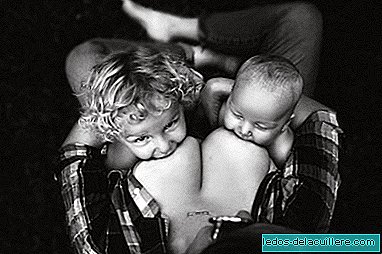
Today is the International Women's Day and a historic feminist strike. Supported by professionals from all sectors, it started, at dawn, to claim gender equality, a wage gap that ranges between 13% and 23%, sexual harassment, sexist violence, imbalance in household chores or job insecurity where 74% of women have partial contracts.
Thus begins this 8-M that will somehow affect the functioning of the normal life of all Spaniards because the motto of the strike says: "If we stop, the world stops." How does the strike affect the education sector? Who will be in charge of our children today?
Education is a mostly female sector, specifically three out of four teachers are women. In Infant of first cycle (0-3 years) it supposes 98% and 84% in Infant of second cycle and Primary, happening to 60% in Secondary. Perhaps it is for this reason that this strike has the support of the teachers and students union that has called for adherence to it.
What will the minimum services be like?
Under these premises, the Ministry of Employment establishes that there are some minimum services based on one teacher for every six classrooms in Infant and Primary; in Special Education, one for every four classrooms; in kindergartens, one third of the staff.
In addition, non-university teaching centers and nurseries they must have a person from the management team, either the director, head of studies or coordinator, who will join the teaching staff.
What happens in the dining room and extracurricular activities?
In dining hours or extracurricular activities, the safety of the students must be guaranteed above the strike and a third of the staff will also be maintained.
Collective daycare centers
In cities like Madrid or Seville they are starting up care groups managed by men, a great way for them to also support this strike.
The purpose of these collective daycare is double: on the one hand, it will help women to claim their rights and on the other hand men can show their support by showing that they are also involved in the care of children. They will be divided in shifts depending on the work of each of them, although some are unemployed or autonomous.
More spaces for childcare
Other initiatives have emerged as support for women who want to go on strike and have dependent children, therefore, groups such as Vicálvaro Women's Assembly (Madrid) It has conditioned a place given by the City Council to accommodate children. These can only be delivered and collected by a previous person's ID card and each child will have an identification card with the name, contact phone number of the reference adult, allergies and other relevant information. A management where men have great prominence.
Like Vicálvaro's, we find another example in the La Ingobernable social center, in the center of Madrid, where about 24 men from early in the morning will take care of children between 4 and 12 years old as well as older people.












